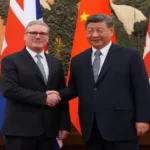Former U.S. President Donald Trump has been reported to suffer from chronic venous insufficiency (CVI)—a relatively common and non-life-threatening medical condition—particularly in individuals over the age of 70.
What Is Chronic Venous Insufficiency?
Chronic venous insufficiency occurs when the valves in the leg veins fail to function properly, making it harder for blood to flow back to the heart. As a result, blood pools in the lower extremities, leading to symptoms such as:
Legs and ankles that swell.
Heaviness or pain in the legs.
Visible varicose veins.
In extreme situations, skin alterations or ulcers.
According to medical experts, CVI is benign but chronic, meaning it can be managed with lifestyle changes, compression stockings, and medical supervision, but it is unlikely to resolve completely without intervention.
Typical of Elderly People
CVI is common in older adults. According to studies, approximately 40% of adults over 70 may exhibit some degree of venous insufficiency. Physicians stress that while it may cause discomfort or fatigue during long periods of standing or walking, it does not generally impair mental or executive function.
Effect on the Activities of Trump?
When properly controlled, CVI usually does not restrict daily activities, according to medical authorities. The 79-year-old Trump is still involved in public and political life, holding rallies, making many trips, and playing a key role in the 2024 presidential campaign.
According to reports, his condition is not significant and has no effect on his general suitability for public office participation, cognitive aptitude, or stamina.
Emphasis on Transparency
Although the health of presidential candidates frequently attracts public attention, Trump’s team has characterised CVI as a common ailment for a person of his age. According to experts, being open about these diagnoses helps debunk myths and raise awareness of health issues associated with ageing.
In conclusion, Trump’s condition is manageable, common, and benign, drawing more attention for its political implications than medical urgency.






